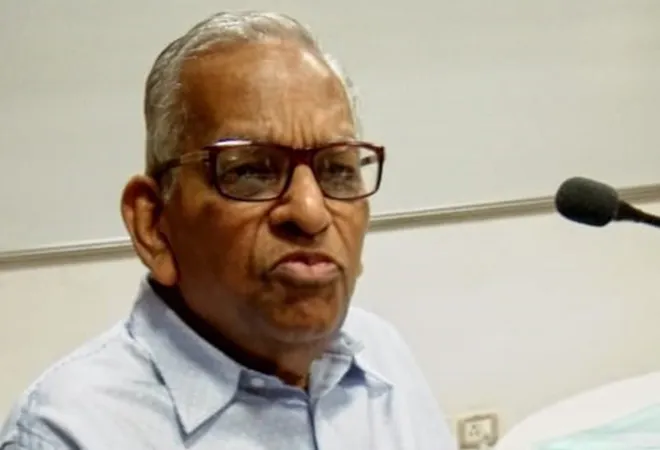-
CENTRES
Progammes & Centres
Location

“Iran would like to have more engagement with India,” remarked D M Mohunta, Engineering Consultant, while delivering a talk at ORF-Chennai after his recent trip to Iran, titled “Impressions from Iran”, on 17 August 2019.
“Iran would like India to cooperate more, especially with regard to Afghanistan, where it would like India to be more engaged”, he said. Iran is particularly concerned about what is happening in Afghanistan, he said, adding that there were about 500,000 Afghan students currently studying in Iran. According to him, “Chabahar was a step in the right direction, but Iran would like to take bilateral relations with India to the next level.”
Mohunta noted several affinities with India, particularly northern Iran and the north-west of India, in terms of food, architecture, music, dance, language and so on. “Interestingly, the concept of thazeeb was common to both India and Iran,” he pointed out. In sharp contrast to major cities in India, however, Mohunta noticed that Tehran was litter-free. “Their public places and gardens are extremely well kept and clean,” he said. He was also struck by the state of infrastructure, which he remarked was “excellent. Their network of highways is excellent. Successful execution could be observed to the last detail. Town-planning is integrated with traffic-planning, for instance.”
“They have no diplomatic relations with the US and this has been the case for the last 40 years. This has adversely impacted on Iran’s economic progress, said Mohunta. “Iranian economy and industry have been affected by some form of sanctions over the last 40 years. There is a perceptible bitterness towards the US about these sanctions. However, you don’t see its impact on the day-to-day lives of the people.
Though there is heightened tensions between the US and Iran, it is at the level of the governments. People in Tehran are seen going out and celebrating on a daily basis,” observed Mohunta. “Iranians are very patriotic people,” he said. “Iranian flags are to be seen everywhere, along with bill-boards showcasing the power of Iran, the military as well as the heroes of the Iraq War,” he recalled.
“Their big advantage is low-cost energy” said Mohunta. Iran, he felt, was capable of rapid progress if sanctions were not there. “Yet their industry is well developed given the constraints, particularly Steel and Cement,” he said. 90% of world’s saffron comes from Iran, but because of the sanctions they pay a heavy cost. Their exports have to go through Dubai, Russia, Azerbaijan and so on.
“Iran would also like India to come and invest there. One possible alternative was in the field of brine-mining” said Mohunta. He explained that Iran’s salt lakes contain bromine and lithium. Due to the constraints on their economic progress, this is not a priority for them. However, Mohunta suggested that countries like India could help in this way.
In conclusion, Mohunta said, “My overall impression was that Iranian people are extremely hospitable, perhaps amongst the most hospitable people in the world. They are also very patriotic and progressive, particularly in terms of the position of their women. They can divorce their husbands, and the concept of ‘triple talaq’ is absent. There was an observable equality between men and women. Despite the sanctions, they have developed their technical capabilities and this is due to a deep willingness to learn which comes from ancient civilization and from historically being the cradle of knowledge.”
The report was prepared by Dr Vinitha Revi, Research Associate, Observer Research Foundation, Chennai
The views expressed above belong to the author(s). ORF research and analyses now available on Telegram! Click here to access our curated content — blogs, longforms and interviews.